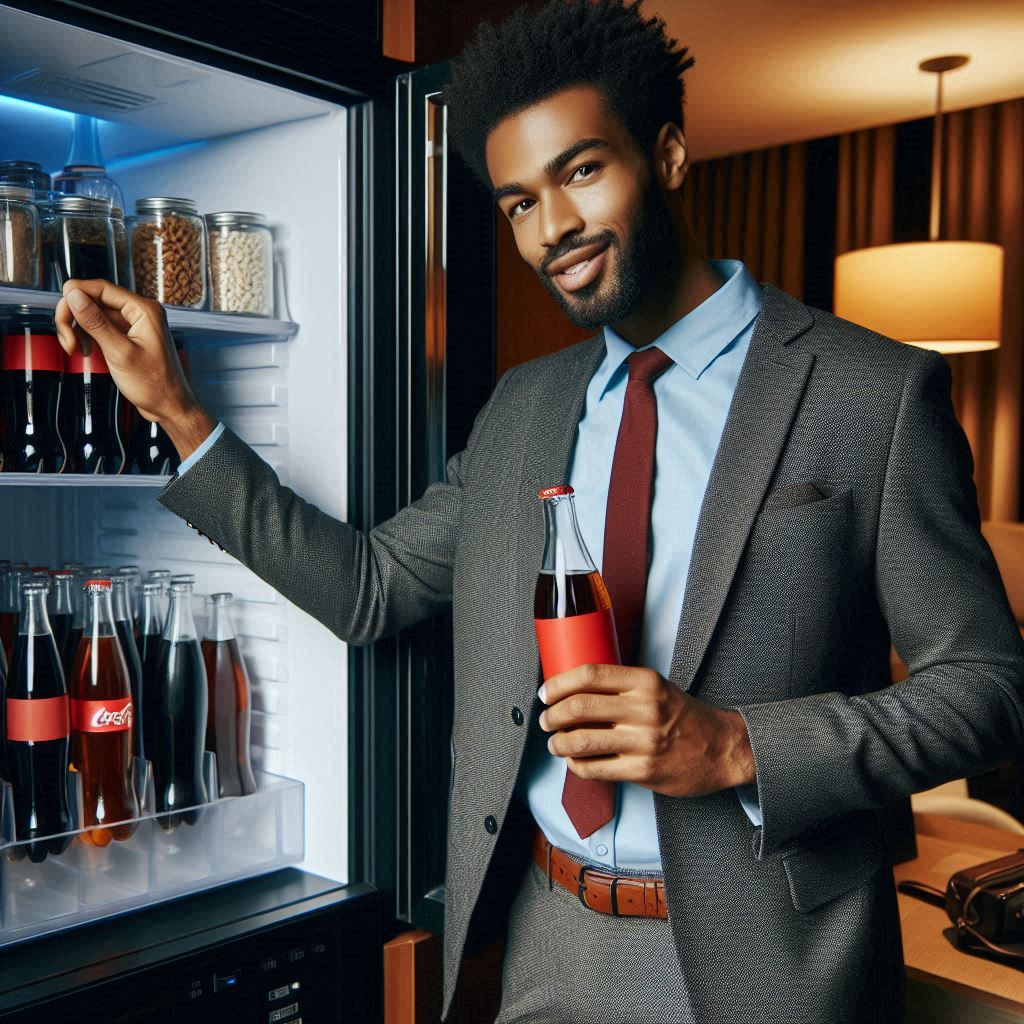I’ve been doing these blogs for a few years now, and have covered a wide range of subjects, some pretty safe and some slightly more controversial. If you’re a regular (or even occasional) business traveler then one of the most controversial topics is expenses. Before we get started, humor me whilst I cover some of the basics for those that don’t get their airport sandwich and taxi paid for by a benevolent organization.
The premise of expensed business travel is simple; the costs that you incur when you are travelling are met by your sponsor (the company or institution that you’re working for). Most of these costs are pretty obvious. You need to eat and drink, you need somewhere to stay, and you need to be moving about. So, in the most basic of terms, subsistence, accommodation and travel are reimbursed. But it isn’t quite as simple as that. Let’s explore the slightly grey world of expenses together. It’s your round, so get the drinks in. Oh, and please get a receipt…

I’ve now worked at six or seven different companies in roles with expensed travel, so I’m able to compare and contrast the different rules and systems – and I’ve also experienced some “shortcuts” in those systems; any expense system does require an element of trust, and that is sometimes manipulated a little.
If you’re a reader that doesn’t have expensed travel then you may be wondering how the systems generally work, how automated they are, and what checks and balances are in place. They’re all different – and two of my most recent travelling roles have used systems at opposing ends of the spectrum from an automation point of view.
Larger companies I have worked for tend to use highly automated systems. This is done for good reasons; dealing with the expense claims of multiple individuals can be a time-consuming task, so automating the task does have an appeal. These days, the automated systems are clever, even to the point that if you take a photograph of the expense receipt with your cell phone, the expenses app works out the expenditure amount as well as the type of expenditure (food versus accommodation for example) and starts inputting the claim details for you. This is all very clever, and probably a benevolent and beneficial use of AI.

I had access to this system at the last large company I worked for, and it did save a huge amount of time. It was also used for travel booking, meaning it really was a one stop shop for business travel. I loved the immediacy of it – my claim for fish and chips with a side helping of sauvignon blanc at the airport could be submitted for approval before I headed off to gate 27.

All perfect then? Sadly not. This same, highly automated system only recognized hotels that it had been programmed to recognize. So, let’s say you’re travelling to Guangzhou and you know the Hilton is in the best location (other hotel brands are available, etc.). If the Guangzhou Hilton is not in the system, you can’t book it. Computer says no. The only fix was to contact the expenses administration team and ask them to manually add it. Which they did, grudgingly.

The other end of the expenses scale is to manually fill in an Excel spreadsheet with the details and then submit it to an actual human for perusal. It’s obviously a more labor-intensive system, but on the plus side that human is likely to be able to be reasoned with if your expense is outside the scope of the commonplace.
What is and isn’t a reasonable expense? No comment, no way am I falling into that trap! Suffice to say that over the years the travel and expense policies at the companies where I have worked have varied quite widely. Most have a few very particular rules; for example: “nothing may be expensed from a hotel minibar”. Limitations on the class of travel are also common, which is to be expected. What I will say though, is that all of the places I worked made it clear that the restrictions were really only there to ensure the system wasn’t abused. For example, if an engineer had to travel at short notice to fix an instrument and most of the hotels in the area were full, then the hotel budget per night could be expanded somewhat.

It’s at this point in my blogs that I often recount a few stories by example. And this blog is no exception, so here goes.
As far as I can recall, I’ve only had one complaint about my expenses. I was working for a mass spectrometry company based in Christchurch, New Zealand (yes, really). I received an e-mail from my Australian boss “J” stating that “there is a serious problem with your expenses, we’ll discuss tomorrow”. Now I have what people politely call an over-focus on small details, so getting my expenses wrong was unusual and most worrying. The next day I nervously joined our scheduled Skype call, to be told by my boss… “Steve, shandy, seriously….?” For those who don’t know, “shandy” is a mixture of beer and lemonade, not highly rated by a hard living, beer drinking Australian. His next comments was: “make it beer next time, I’m not paying for shandy”.
I have mixed feelings about the expenses part of my many trips to Asia. For one, getting receipts was a challenge in some countries, and of course those receipts very rarely had any English text on them, meaning you had to remember the expense purely by the numerical values. Turns out my colleague “D” had no such worries. On a night out with him after a hard day of work in Beijing I noticed him picking up litter on the street, which seemed very out of character. His response was “I can’t be bothered to keep receipts during the trip, so I just pick up a bunch of discarded receipts when I get near the end of my trip”. This is the same colleague that managed to successfully get away with having a cigarette on a non-smoking flight, so you probably get the picture.

On another Asia trip, I stayed at a hotel that only had what I would call a “challenging” breakfast selection, seemingly mostly consisting of eels. I decided to have fizzy juice from the minibar and forget the proper hotel breakfast. I was really enjoying my breakfasts until a few days later a colleague informed me that the “juice” drink was an Asian alcopop and was about 5% alcohol. A shame, as I’d never enjoyed my morning meetings so much.

My next expenses memory is also in Asia. It doesn’t involve me, but a former colleague “S”, who had travelled to Japan. Work overran and he couldn’t make his flight home, instead turning up at the airport the next day with his credit card in his hand to purchase a new flight. Unfortunately, the majority of the flights were full. The very apologetic airline representative informed “S” that only first-class tickets were available, and gave the price in Yen. S converted the price into British currency, and although the price seemed pretty high (about £1,500 / $2,000) he needed to get home, so we went ahead. But when it came to expense time (can you see where this is going…?), S had made a mental miscalculation. He got the converted price wrong by one decimal place. The price of the flight was actually £15,000. He was teased mercilessly by his colleagues for months afterwards, but fortunately didn’t lose his job…
What about the “grey areas” in expensed travel? Probably the most contentious is tips. In some parts of the world, tips are virtually mandatory, yet in other parts tips are not just unnecessary but may be considered rude. I’ve worked at some places that let you expense tips and some that don’t. I do prefer the former, but that’s not entirely self-serving; I’ve known colleagues in the past that won’t give tips when dining on company business unless those tips will be reimbursed. In these cases, the loser is the server at the restaurant. So, let’s vote for claimable tips!

And then there is alcohol, probably at the heart of many expense conflicts. Whilst policies do vary, my approach tends to be that if you are entertaining existing or prospective customers, claiming for their margaritas is acceptable. If you’re travelling on your own, a drink at the airport bar before the flight home is probably OK, but not four. You will find though, that regular travelers get quite opinionated about this particular topic so I expect some hearty disagreement!
I’ll finish with a few tips learned from my own travel experiences:
Photo as you go: Take photos of your receipts as soon as you get them. Then it doesn’t matter if you lose the pile of treasured receipts you’ve been collecting
Record your tips: If you give a tip, write it on the receipt before you take that photo, then there is no requirement to memorize whether you really did tip for that burger
Don’t max out the budget: if you have a budget of $40 for each evening meal, don’t spend $39.50 every day, have a few cheaper ones and then you’re at least looking like you’re trying to be economical
Use apps to pay: Systems like Alipay and WeChat Pay in China are very expense-friendly, giving you an expense report at point of purchase. Just screen shot and you’re good to go, no paper required
Pick well known chain restaurants: If you’re travelling alone, pick a food chain that is well known for being reasonably priced (in the UK, places like Pizza Express) – better this than trying to get a claim from a fancy steak chain past the expenses team, even if the steak was the cheapest on the menu
That’s all for now! If you have any stories or experiences regarding the travel expense system, please let me know, I’d love to hear about them. As always, send to: (Stephen.guilfoyle@isotopx.com). More next time!
